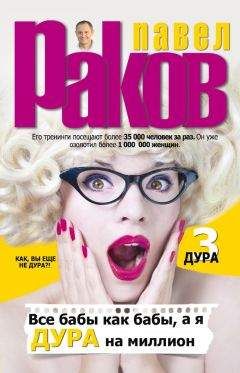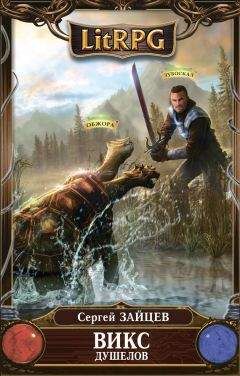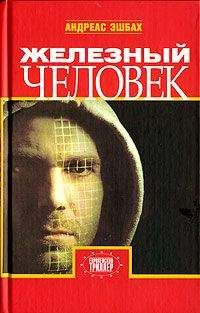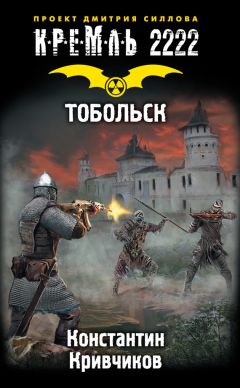Ed Lacy - Breathe No More My Lady
PART II
The Trial
Never having attended a criminal trial before, much less one involving murder, for me there was a confusing air of unreality in the crowded courtroom. I had the feeling of watching an amateur production of a corny melodrama. Certainly there was nothing in the attitude of the morbid spectators, dressed in their Sunday best, or about Matt himself, to suggest a life was being tried.
By the time I arrived I could find a seat only in the rear of the courtroom. I saw May Fitzgerald and the Hunters sitting up front together. Prof. Brown was in the row behind them. Joel seemed nervous while Wilma was dressed to make an impression in a tight mild blue suit which showed off her good figure and red hair.
Matt Anthony appeared calm and at ease, practically lounging in his chair. He was very much 'the author' in a shaggy, tweed sports coat that made his tremendous shoulders stand out, a plaid dress shirt and a matching tie. There was a thick pad of paper in front of him and several pencils. When he wasn't writing furious notes, Matt casually glanced around the courtroom, as though he was the spectator. Although the judge had ruled against Matt having a tape recorder in court, Matt was going ahead with his 'book' in long hand. Bill Long told me Maggie had already received the first chapter, along with a sealed envelope and some hocus-pocus instructions from Matt that this wasn't to be opened until he had sent in the complete manuscript. Maggie was waiting for more chapters before reaching any decision, of course. Jackson Clair sat next to Matt, also very much at his ease. He was not only wearing his beaded belt, but his tie clasp was in the form of a tiny silver broken arrow from which the Phi Beta Kappa key hung like a neon light.
The prosecutor, Sidney Wagner, looked about 40, a dried-up man with thin features. He wore a very conservative blue serge, a stiff collar and a plain dark tie. He suggested starch and ironing in the kitchen: small time stuff. His pale face was lacking any show of emotion or imagination.
The judge looked the part: plump, gray hair, and a mixture of dignity and self-importance. The jury had been selected the day before, three women and nine men—very average looking locals, and seemingly quite pleased with their roles.
The trial started promptly at 10:30 a.m. when Wagner addressed the jury. I supposed his speech established a brevity record for trial openings. He had a cold, forceful voice and was stingy with words. The second he opened his mouth you knew you were listening to a capable man. And if he looked old fashioned!—so does a rattle snake. He said, “Mr. Foreman, ladies and gentlemen of the jury. The State will prove that on July 25th last, in the presence of witnesses, Mr. Matt Anthony threatened to kill his wife, Francine Anthony. Several hours later, with clear premeditation and intent, Matt Anthony murdered his wife. It is the State's contention that after threatening his wife's life, when he later noticed Fran-cine Anthony out fishing, Matt Anthony saw this as an opportunity to carry out his threat; that he planned to swim out and beat his wife to death, which he did. He further planned, with his considerable knowledge of criminal methods, to make the murder appear to be an accident. He was not successful in this, and later that same day confessed to killing Francine Anthony. The State will prove all this by testimony and facts, and with such proof will ask that you find Matt Anthony guilty of murder.”
Maybe the opening speech took a minute, perhaps longer, yet it had all the power of a short right to the chin. When Wagner finished, Jackson seemed startled—perhaps at the briefness.
Jackson Clair stood up slowly, opened with a show, a carve as I expected. Flashing a practiced and rugged smile at the jury he said slowly, “Ladies and gentlemen, I realize I face you as a stranger. Certainly most of you, being residents of this splendid and booming county, are acquainted with my worthy colleague in one form or another. Of course I know that will not influence your decision in the slightest And as a matter of fact I do not feel a complete stranger, for my ancestors once roamed and worked this very land. Perhaps, less than a hundred years ago, one of my Indian forefathers fished in the nearby waters. If proof should be needed that America is a melting pot, I could be that proof. I tell you this not for any personal reasons, although I am justly proud of my ancestors, but only to remind you our country was founded upon what was then a new concept of justice, upon principles our sons and fathers have since fought and died for time and again. I don't have to tell you the main principle is democracy: from the days of the Indian councils to our time, democracy has been the very life-blood of America. I am stressing this because the ideals of liberty and democracy will play an important role in this trial, as they must in every trial held in our country. These ideals are not only for the courts and the government, they also form the bases of our businesses, our home life, all our relationships.”
Matt was watching him with a slight smile that grew bigger as Jackson began to pace in front of the jury box; slow, deliberate steps featuring the polished moccasins.
“It is in the framework of democracy you sit here, the judges of Matt Anthony. True, you are called jurors, but in a final sense you alone are the judges. Matt Anthony killed his wife. There is no doubt of that, he has confessed it However he has not confessed to murder. On the contrary, as the defense will prove, it was far from a premeditated killing. In a moment of blind rage this giant of a man lost control of his temper, of his reasoning, struck his wife. She, in turn, hit her head on the side of the boat and died. This is a shocking thing, but we will prove it was not murder. There wasn't any gun or knife involved. The only weapon, if we can term it as such, was the weapon we all possess—this.” Clair held up his hand to the jury. “I am sure you all know our hands very often get us into trouble... even accidental trouble. If Matt Anthony and his wife had argued on land, if she hadn't taken a bad fall, she probably would be alive this moment Perhaps by this time, she would have forgiven her husband, forgotten the incident.”
“It is the defense's contention—which we will prove—that Matt Anthony was driven by Francine Anthony's goading to a point where he no longer knew what he was doing, where for a moment he could not tell right from wrong. Look at Matt Anthony, a big man, far above the average, a man who stands out. Anyone walking into this courtroom would notice Matt Anthony first You and I think of ourselves as average persons, in fact, I believe we are proud to be called that. Well, ladies and gentlemen, Matt Anthony is not an average person. As I shall prove, he belongs, figuratively and literally to that tiny tribe of giants we call geniuses. Here is a man who can make people like ourselves come alive on paper, who creates and populates entire cities and countries, who can make weather, homes, airplanes, cars, who can delve into the innermost workings of our brains... with his mind and typewriter. Before you there sits a man of unique talent I tell you this not to praise Matt Anthony, the writer, although he has won international acclaim as an author, but because it is the defense's contention, which we will back with proof, that the mores and conventions which hold for the average person can not be fully applied to those rare humans who are above average. The very definition of convention means a fixed usage sanctioned by general custom. Remember those last two words, general custom. In other words, mores are made for the average people.
“Now I am not so foolish as to claim that a genius is above the rules and laws of society, but I do say where the above-average person is concerned, there must be a certain flexibility. This is not an original idea of mine, it is accepted in law. There are laws to cover average cases, and there are also unwritten laws for cases that are not average. I am not lecturing you on the law. We have a most capable judge here to tell you the law. But I repeat, we are judging a man of genius here. A man whose very genius was being ruined by his wife's constant nagging. I will prove that Francine Anthony also had a talent: she knew how to nag her husband until she drove him to the breaking point where he could no longer think rationally. At that moment, when his mind broke, he struck out at his tormentor in a blind rage with all of his great strength... and when he regained his sanity, he found to his horror and amazement that his beloved wife was dead. Oh, yes, despite her nagging, Matt Anthony loved his wife. Matt Anthony had no more control over Francine Anthony's death than you or I. For a man of his strength to strike a smaller person, a woman, is truly an insane act; something he'd never thought of doing before. The defense shall prove all this and when we do, I know you will bring in a verdict of not guilty by reason of temporary insanity. Thank you.”
Jackson walked slowly to his seat. Matt was still writing intently. Two reporters in the press section were whispering. I glanced around the courtroom, wondering if anybody, including Jackson, knew exactly what the devil he'd said. Wagner looked mildly bored. Several times I thought the judge had been on the brink of cutting Jackson off or of telling Matt to stop writing and pay attention. Now Clair sipped a glass of water, smiled at the world.
The State opened its case by calling the End Harbor cop who had been the first official on the scene. He fixed the time and day, told of pulling the boat in, examining the corpse. A Harbor doctor next testified death had been caused by Francine striking her head on the side of the boat with 'great force.' He went into detail as to the exact position of the body, the approximate time of death ”... about 2 p.m....”
Matt would gaze at each witness with his set, small smile —a kind of sardonic, plastic grin—for a moment, then start scribbling away. Jackson had only a few routine questions.
Joel Hunter was the next witness. His face was flushed, giving him a weird appearance, what with his short light hair. He kept licking his lips, and his tongue seemed as long as a frog's. Wagner quickly established that Joel was a writer, a friend of the Anthonys, and had been a house guest at End Harbor. In voice slightly shrill with nerves, Joel told of Prof. Brown coming back with Matt that morning, how upset Fran-cine had been upon learning Brown had been in the papers as a Fifth Amendment witness. Under Wagner's dry questioning Joel told of Matt threatening Francine when she said she would order Brown to leave the house. Joel seemed absolutely wretched as he repeated the threat, and the judge asked him to raise his voice. Joel glanced at Matt, his eyes almost a plea, as he repeated the threat in a louder voice. Matt was still smiling, and it seemed to me he winked at Joel, although from the angle at which I was watching I couldn't be positive. Wagner quickly covered the finding of the body, how Matt had tricked Joel on the time, and Hunter's 'shock' when Kolcicki took Matt away a few hours later, saying he had confessed.
Jackson arose to point out that the confession had not as yet been placed in evidence, and Wagner said he was merely asking Joel what Kolcicki had told him. Jackson waved his hands, said he didn't want to delay the trial and would withdraw his objection. If this was meant to rattle Wagner, it had as much effect as a baby slapping the side of a battleship. If anything, it annoyed the judge.
Wagner then asked, “Mr. Hunter, during the recent time you spent in the Anthony home, the various other times you were together with Mr. and Mrs. Anthony, did you hear them quarrel often?”
Joel licked his lips, fondled his thick glasses. One could almost see his brain working, trying to figure what sort of answer would benefit Matt Wagner said softly, “Come, Mr. Hunter, it's a simple question: did they often quarrel, make cutting remarks at each other?”
“I would say they often teased each other.”
Teased? Before July 25th did you ever hear Mr. Anthony shout at his wife in anger? Or Francine Anthony shout in anger at him?”
“Yes sir.”
“Have you heard either of them shout at the other in anger a few times?”
“Quite a few times.”
“Did you ever hear Mr. Anthony quarrel with his wife while under the influence of liquor?”
Matt's smile grew larger as he made a fast note.
“I'm not an expert, can not say whether he was ever drunk or—”
Wagner broke in impatiently, “Come, now, Mr. Hunter, I didn't ask if he was drunk. Have you ever heard Mr. Anthony argue with his wife after you had seen him take one drink or more?”
“Well... yes, sir.”
“Have you ever heard Francine Anthony argue with her husband after she had one or more drinks?”
“Yes.”
Matt whispered something to Jackson who made a motion as if telling him to shut up. Matt grinned happily.
“Am I correct in stating that over a period of time you have witnessed the Anthonys in argument over various matters, sometimes when either or both of them had been drinking?”
“Yes, sir—petty family quarrels.”
“I see, family arguments. Now, think carefully, Mr. Hunter. At any time while they were exchanging words, arguing, at any time except on July 25th, did you ever hear Mr. Anthony threaten to kill his wife?”
“Oh, no, sir.”
“No matter how angry Mr. Anthony was?”
Joel said, “Indeed not,” before Jackson could spring to his feet and object that the degree of anger had never been established. Wagner said something I didn't catch and the judge upheld the objection. Wagner bowed slightly—toward nobody —asked, “Mr. Hunter, at any time except on July 25th did you ever hear Matt Anthony threaten to kill Francine Anthony?”
“No, sir.”
Wagner said, “That will be all, Mr. Hunter.”
Wagner sat down and as Joel started to leave the stand, Jackson climbed to his feet slowly—a deliberate movement emphasizing his gawky, Lincolnesque height. “One moment, Mr. Hunter, I have a few questions.”
For some reason this caused faint laughter in the courtroom, even the jurors grinned. Jackson stood beside the witness chair, but facing the court, as he asked, “Mr. Hunter, do you believe in the United States Constitution?”
“Of course I do.”
“Do you believe in all of the Constitution?”
“Yes, sir.”
“Do you think Prof. Brown invented the Fifth Amendment?”
Joel's large face was utterly confused. As Wagner got to his feet the judge said sternly, “Mr. Clair, I will not tolerate sarcasm in this court. I trust I shall not have to warn you again about this.”
Jackson turned toward the judge, his booming voice actually ringing with sincerity. “Your Honor, being a lawyer I respect the court and the law. I was not being sarcastic. This witness has stated the late Mrs. Anthony wanted Prof. Brown to leave the Anthony house because he had taken the Fifth Amendment, as if it was a criminal act. I am merely trying to show that the Fifth Amendment is a part of the Bill of Rights, put into the Constitution for the purpose of—”
“Are you making a speech, Mr. Clair?” the judge asked.
“Sir,” Jackson projected his voice so it filled the courtroom, “I am only establishing that it is neither a criminal act nor a sign of guilt to use the Fifth Amendment This is of the utmost importance to the defense of my client.”




